7. Digitalisation in enterprises' business activities in 2012 to 2014
For the first time, the survey asked about the importance of digitalisation in enterprises’ business activities. Digitalisation refers to transferring goods, services and their production or distribution to electronic format.
In the light of the results, digitalisation can be estimated to have a significant effect on enterprises' activities. All in all, 38 per cent of enterprises saw the importance of digitalisation in marketing as either high or moderate and 36 per cent felt digital products were important for the enterprise's business activity. Around one-third of all enterprises estimated that the role of cloud services, the Internet of things and digitalisation in the production of their products, as well as in the distribution of products, was important.Figure 27. Importance of digitalisation in enterprises' business activities in 2012 to 2014, share of enterprises
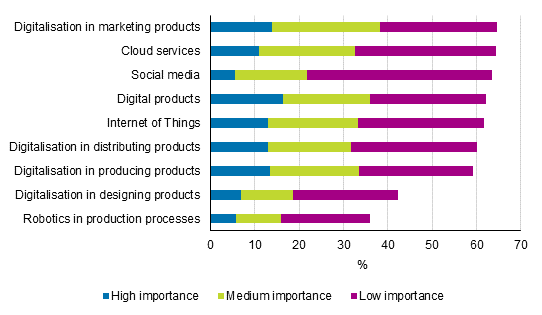
Based on the provided digital viewpoints, digitalisation was more important for service industry enterprises’ business activity than for manufacturing enterprises. Close on one-half of service industry enterprises, or 47 per cent, estimated the importance of digital products as high or moderate, and 45 per cent felt that digitalisation was significant in marketing. The respective proportions in manufacturing were 22 and 30 per cent.
Around four out of ten service industry enterprises reported that cloud services and digitalisation were important in product production and distribution. In manufacturing, the importance of these was high or moderate for good one-fifth of enterprises. Robotics, its utilisation in production processes was more important for manufacturing enterprises than for service industry enterprises. One-fifth of manufacturing enterprises estimated the importance as high or moderate, while the share among service industry enterprises was eight per cent.
An examination by industry reveals a more detailed picture of the importance of digitalisation. In nearly all examined industries, a majority or at least a significant share of enterprises said that at least one of the provided digital viewpoints was important for the enterprise's business activity. In some industries, it is common to utilise social media or cloud services, while in others the Internet of things and robotics are more important. Based on the nature of the activities, some industries can utilise the entire potential offered by digitalisation better than others. For example, digital products are important for every fourth enterprise in the wood processing industry and for 85 per cent of enterprises in the software industry. In the food industry, around one-third of enterprises consider digitalisation important for product marketing, while the corresponding share in financial and insurance activities was 65 per cent.Figure 28. Enterprises that estimated the importance of digital products in their business activity as of high or medium importance by industry in 2012 to 2014, share of enterprises
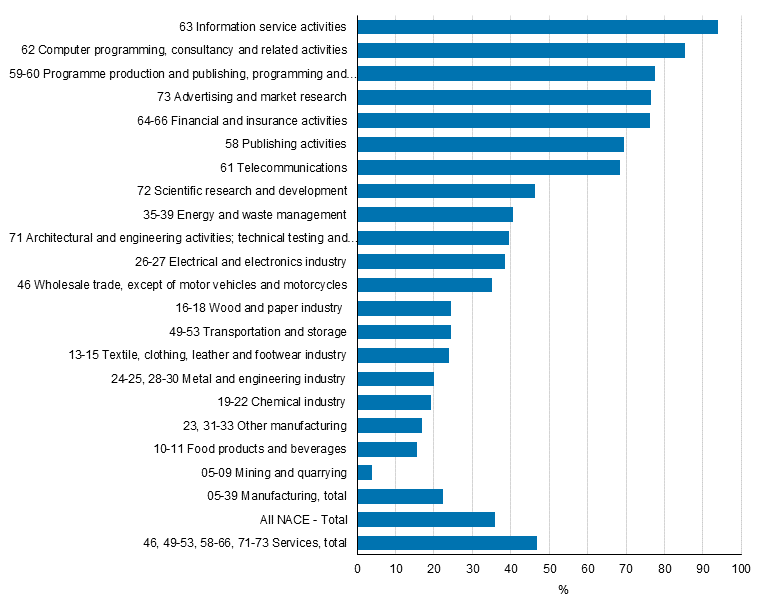
Figure 29. Enterprises that estimated the importance of the Internet of things as of high or medium importance by industry in 2012 to 2014, share of enterprises
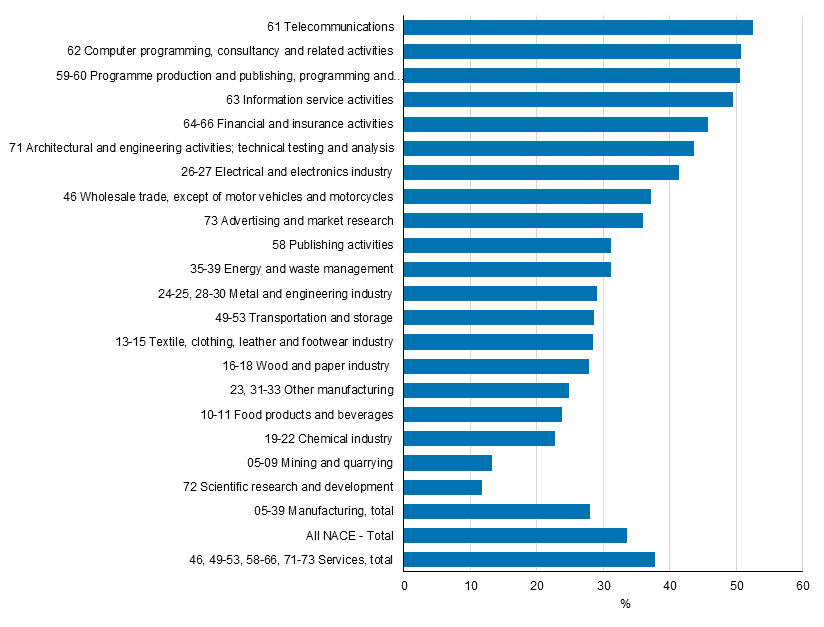
Enterprises that reported innovation activity in the survey also reported utilisation of digitalisation and its importance for the enterprise's business activity more often than others. Among those who reported innovation activity, nearly one-half considered the importance of digital products to be high or moderate, while around one in five enterprises without innovation activity thought the same. The corresponding shares for utilising cloud services were 43 and 20 per cent, 51 and 22 per cent for digitalisation in marketing, and 41 and 24 per cent for the Internet of things.
Figure 30. Importance of digitalisation in enterprises who reported innovation activity in 2012 to 2014, share of enterprises with innovation activity
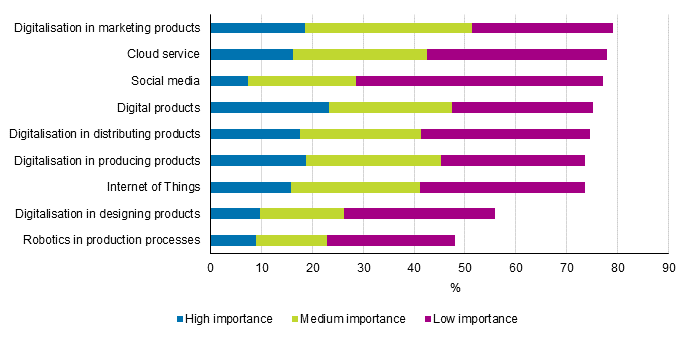
Figure 31. Importance of digitalisation in enterprises who reported no innovation activity in 2012 to 2014, share of enterprises with no innovation activity
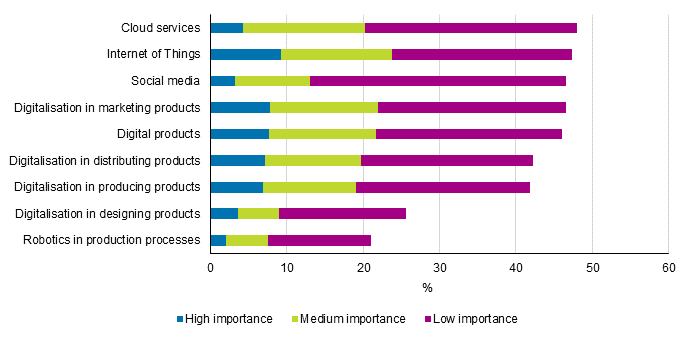
Source: Innovation 2014, Statistics Finland
Inquiries: Mervi Niemi 029 551 3263, Heidi Pirkola 029 551 3246, tiede.teknologia@stat.fi
Director in charge: Mari Yl�-Jarkko
Updated 2.6.2016
Official Statistics of Finland (OSF):
Innovation [e-publication].
ISSN=1797-4399. 2014,
7. Digitalisation in enterprises' business activities in 2012 to 2014
. Helsinki: Statistics Finland [referred: 20.2.2026].
Access method: http://stat.fi/til/inn/2014/inn_2014_2016-06-02_kat_007_en.html

